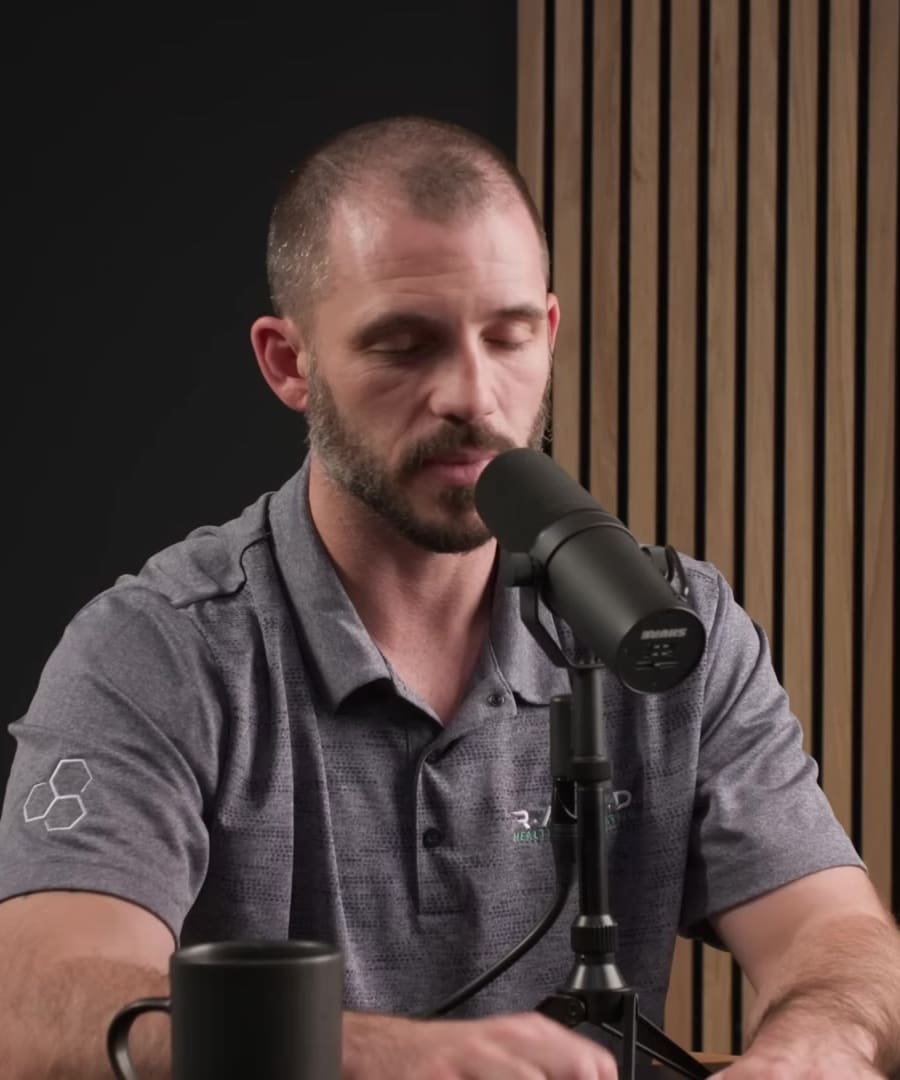Good pre-workout from woman to build muscle.
I could not find specific recommendations from the related to a good pre-workout for women to build muscle. However, generally, pre-workout recommendations might include nutrients or substances that can increase energy levels, improve performance, and support muscle growth, like caffeine, creatine, or beta-alanine. If new data becomes available or you have another question related to the knowledge of , feel free to ask!
RELATED QUESTIONSCan you give me nutrition tips for building muscle?
Sources:
Here are some nutrition tips for building muscle based on what has been shared in the Huberman Lab podcast:
-
Carbohydrate and Protein Timing: Dr. Andy Galpin recommends focusing on the timing of carbohydrate intake around workouts, with a rough guide of half a gram of carbohydrates per pound of body weight to fuel high-energy and high-muscle-damage workouts. Protein intake is important across the whole day, but the total amount of protein ingested throughout the day is more critical for muscle growth than the exact timing relative to your workout 1.
-
Recovery Nutrition: During recovery from workouts, Dr. Galpin suggests increasing calorie intake by about 10% to account for increased basal metabolic rate. He emphasizes ensuring a protein intake of at least 1 gram per pound of body weight for adequate amino acids to help with recovery 2.
-
Essential Amino Acids & Protein Density: Dr. Huberman highlights the importance of ingesting 700 to 3,000 milligrams of the essential amino acid leucine with each meal and discusses protein density. He notes that animal proteins have a higher density of essential amino acids compared to plant-based proteins, which is something to consider if you are vegan or vegetarian 3.
-
Early-Day Feeding for Muscle Growth: For those interested in muscle hypertrophy and maintenance, early feeding, especially protein, is beneficial due to enhanced protein synthesis associated with the expression of the BMAL gene early in the day. Dr. Huberman suggests ingesting protein before 10 AM 4.
-
Surrounding Training with Protein: Jeff Cavaliere and Dr. Huberman advise having protein surrounding your training, but to be mindful of how it affects your digestion and performance. It's not necessary to rush this process immediately post-workout, but incorporate it based on your individual response and convenience 5.
-
Tools to Reduce Inflammation: Supplementation with omega-3s, vitamin D, and magnesium malate can help reduce inflammation systemically, assisting in the recovery process 6.
-
Stimulant Use and Performance: Dr. Huberman cautions against the use of stimulants that may increase body temperature and impede workout performance or recovery, emphasizing the importance of balancing energy and performance levels without relying too heavily on substances like caffeine 7.
Remember, these tips should serve as a guide, and it is essential to tailor nutrition and supplementation to your individual needs and consult with health professionals, particularly when starting new supplement regimens.
RELATED QUESTIONS-
Should I do high endurance exercise with low BMI?
Sources:
Endurance exercises and training can be beneficial regardless of your body mass index (BMI), but the intensity and type of exercise should be adapted to your individual fitness and health status. The has not explicitly addressed the question of endurance exercise in the context of having a low BMI. However, here are a few considerations based on general principles shared in the podcast:
-
General Endurance Exercise Benefits: believes everyone should have some sort of regular endurance practice, as it is vital for the functioning of the body and mind, and there are clear longevity benefits. Endurance doesn't necessarily mean long-duration activities; there are different types of endurance with varying training protocols 1.
-
High-Intensity Interval Training (HIIT): High-intensity exercises, such as HIIT, can be an efficient way to improve cardiovascular health and metabolism. HIIT involves short bursts of intense effort followed by rest periods. This type of training has been highlighted for its ability to elevate metabolism and fat oxidation after the exercise 2.
-
Impact on Hormones: It's also worth noting that intense and prolonged endurance exercise (beyond 75 minutes) can impact hormone levels like testosterone, potentially leading to reductions due to increases in cortisol 3.
-
Balanced Training: Dr. Andy Galpin suggests training across a full spectrum of exercise intensities is beneficial for maximizing endurance. Incorporating both steady-state and high-intensity training can contribute to improved physical endurance 4.
-
Exercise Preference: If an exercise type makes you uncomfortable or excessively tired, it might be better to choose modalities that you enjoy and can sustain over time, as this will support long-term adherence and benefits 5.
If you have a low BMI and are considering high endurance exercise, it's important to ensure you're consuming adequate calories to support the increased activity, and you should consider consulting with a healthcare provider to tailor an exercise program to your needs. Balancing exercise with proper nutrition and rest is crucial to prevent overtraining and to promote muscle building and overall health.
RELATED QUESTIONS-
Good pre-workout from woman to build muscle.
- RELATED QUESTIONS
Can you give me nutrition tips for building muscle?
- RELATED QUESTIONS
Should I do high endurance exercise with low BMI?
- RELATED QUESTIONS











